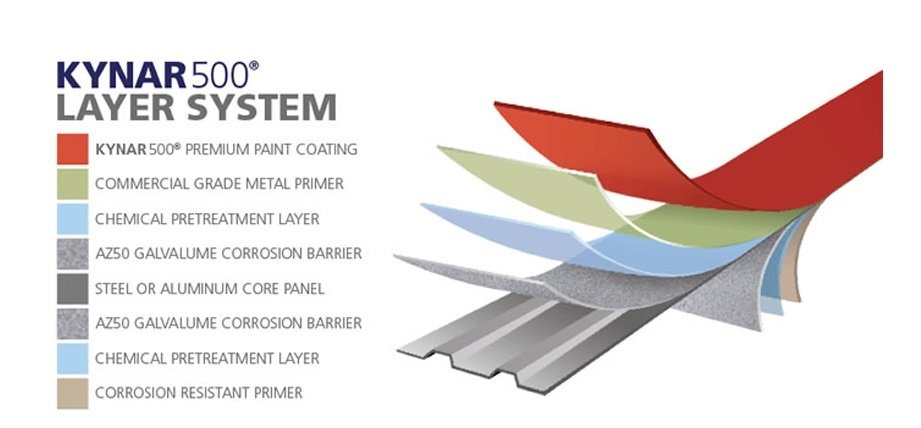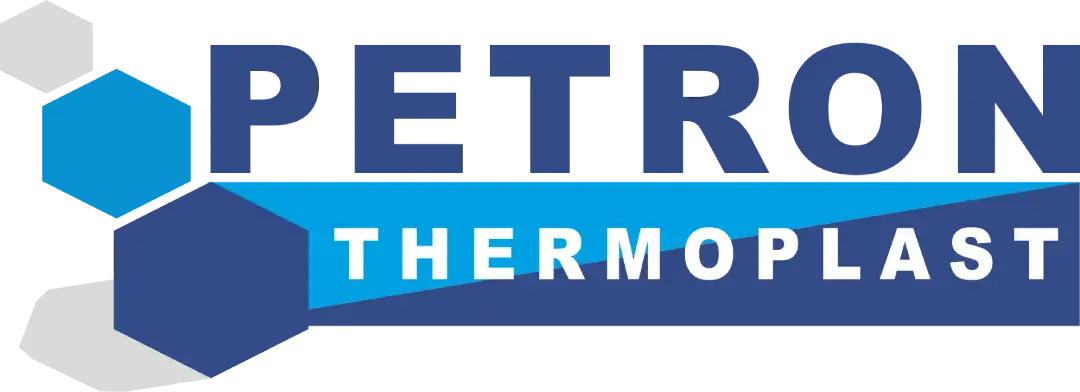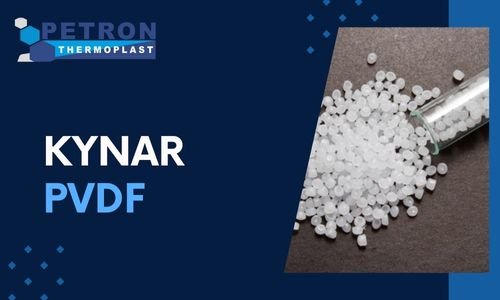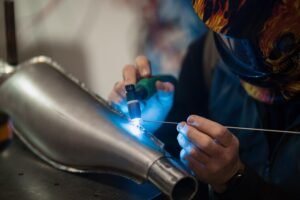Few fluoropolymers have as much processing versatility as Kynar (PVDF). Kynar 500 – or polyvinylidene fluoride – is beneficial because it is suitable for many applications and can be processed in many different ways. While PTFE shares the edge when it comes to many applications – and possibly even more, the fact that PTFE cannot be melted processed means there are limitations in part size and design.
What is Kynar?
Kynar or Kynar 500 is known for its fluoropolymer coating. Fluoropolymer is also known as polyvinylidene fluoride (PVDF). This coating is used to give a base on the materials of metal such as steel and aluminum.
What is PVDF?
Polyvinylidene difluoride or Polyvinylidene fluoride is the most dynamic compound with the chemical formula (C2H2F2)n. It is produced through the polymerization of vinylidene difluoride which is a highly non-reactive thermoplastic fluoropolymer.
| Use Case | Industrial Application |
| Chemical Resistance | Used in piping systems, tanks, and vessels in the chemical processing industry for handling corrosive chemicals and solvents. |
| High Purity Applications | Utilized in the semiconductor industry for ultra-pure water and chemical delivery systems. |
| UV and Weather Resistance | Employed in architectural coatings and exterior building components to provide long-term durability and aesthetic stability. |
| Electrical Insulation | Applied in wire and cable coatings, offering excellent electrical insulation properties and resistance to harsh environments. |
| Fire Resistance | Used in construction materials, such as fire-retardant coatings and panels, due to its inherent flame-retardant properties. |
| Mechanical Strength and Durability | Incorporated in high-performance filtration membranes for water treatment and other industrial filtration processes. |
| Hydrophobic Properties | Utilized in non-stick coatings and surface treatments for industrial and consumer applications to reduce friction and wear. |
| Low Smoke Emission | Used in mass transit and marine applications where low smoke and toxicity are critical during combustion. |
| Temperature Resistance | Employed in automotive and aerospace components where high temperature resistance is essential. |
| Flexibility and Processing Ease | Applied in flexible piping systems, tubing, and fittings, offering ease of installation and maintenance in various industries. |
| Biomedical and Pharmaceutical | Utilized in medical devices, pharmaceutical packaging, and laboratory equipment for its biocompatibility and chemical resistance. |

Product Properties Of PVDF Kynar
PVDF Kynar provides the user with the option to combine rigid and flexible materials during processing. PVDF exhibits the most excellent polishing resistance material for manufacturing. Kynar (PVDF) material can also be manufactured into flexible, transparent, and thin section such as filament, film, and tubing. There are so many polymer materials like ETFE that are always unswayed by sunlight that’s why it is used in open outdoor conditions.
Strength and toughness
Kynar (PVDF) is naturally strong and tough, as evidenced by its tensile properties and impact strength. This is emphasized by the ambient temperature tensile strength at a yield of 35-55 MPa and the uncracked impact strength of 800-4270 kJ/m provided by the selected resins. These characteristics persist over a wide range of temperatures.
Creep properties
PVDF Kynar has excellence in resistance to tensile fatigue and creep properties as compared to many thermoplastic materials. The most picked material for many applications for load-bearing capacity, Kynar is the best in the list. PVDF Kynar resistance in the long term to flexural creep at elevated temperatures is important. Similarly, the short-term elastic creep resistance of the material indicates better load-carrying performance.
Kynar is tough and resistant to creep under mechanical stress and load. It can also handle low tensile creep at constant stress. For example, when PVDF Kynar is subjected to a stress of 0.69 MPa (100 psi), the resin can hold excellent restiveness at 140°C or even higher.
Temperature resistance
PVDF Kynar has high thermal stability along with long exposure to air at 250°C does not cause weight loss. On this material, during continuous exposure to 150°C, there is no thermal or oxidative degradation for ten years.
Kynar is one of the easiest fluoropolymers to process with good properties. This material can be used or procedure up to three times without any single disturbance to its mechanical strength property because it does not contain additives with thermal stability. Kynar tar degrades and discolors during the process even in very high temperatures, the shear rate is too high and the residence time is too long which is similar to many thermoplastics.
Electrical properties
Kynar displays a combined strength property of high dielectric and mechanical over a high-temperature range. This property led PVDF Kynar used as the thin wall primary insulation and as a coat for control wiring in industry. It has a high dissipation factor which gives it advantages as a material for machined parts requiring high thermal strength as a dielectric such as resistance welding. Kynar worked as a shield for high-frequency data cables because of its good smoke and flame performance.
Chemical resistance
Kynar (PVDF) has very good resistive properties in terms of chemicals to a wide range. Many acid mixtures and acids, weak bases, alcohols, salts, halogens, halogenated solvents, hydrocarbons, and these kinds of chemicals show some problems for Kynar.
Many factors affect a material like chemical concentration, exposure time, pressure, extreme temperature, a cycle of pressuring, temperature frequency, abrasive particles attrition, and many types of mechanical stress imposed. The fact is that some combinations of chemical risk and mechanical loads can reduce stress in many otherwise chemically resistant materials, both metal and non-metal, which are of special importance. In general, there is more resistance to stress cracks as a result of the comprehensive molecular load distribution of PVDF Kynar.
Those chemicals that affect the resistance of Kynar such as adhesion and permeability. As a result, coatings cannot demonstrate similar properties as melts-processed resins. The maximum temperature should not exceed 100 ° C (212 ° F) for dispersion or powder coatings. However, the laminated system can be used from 120°- 135°C by assuming that chemical resistance is still sufficient.
The operating parameters of Kynar differ from the experience that happened either in lab testing or field services. It is dependent on the particular applications. This is because of the mixtures of vapors or corrosive fluids that often mix in various individual chemicals. It is strongly recommended that the test installations be evaluated under actual service conditions. For example, when going for the Kynar immersion test at a specific operating temperature in individual chemicals, they will not necessarily predict the performance of fabricated components when exposed to an exemplary reaction between different chemicals. PVDF Kynar behaves at 93 ° C (200 ° F) in contact with nine common chemical species.
Environmental properties
Kynar films up to 0.125 mm thick are transparent. This material has good resistive strength to UV and film thicknesses above 0.5mm, by this it can easily block the UV rays of wavelength less than 250Nm.
Direct sunlight for many years can have a little impact on the physical strength of Kynar properties. However, the tensile strength increases and elongation decreases, which happens over time.
Kynar provides good chemical resistance to ozone display. As we all know Ozone is a powerful oxidizing agent characteristic with a high degree of chemical instability. But PVDF Kynar does not support and is highly resistant to fungi.
Resistance to nuclear radiation
PVDF Kynar resistance is excellent for atomic radiation. The basic tensile strength of the resin is essentially unchanged after contact with 100 Magards (MRADS) of Gamma Radiation from Cobalt -60 source in the high vacuum (10 -6 TORR). Cross-linking reduces the power and increases the effects slightly. For the effects of joint radiation with chemical resistance, this stability has occurred as a result of the successful use of PVDF Kynar components in atomic recovery plants.

Processing Methods Of PVDF Kynar
PVDF Kynar products are extruded at high rates without excluding lubricants, aids, or heat stabilizers. The resins can be processed on standard equipment with manufacturing materials used to process PVC or polypropylene. PVDF Kynar drying (PVDF) is usually not necessary; however, it has proven helpful in reducing some surface defects in film, sheet, and pipe extrusion. The extrusion process produces rods, tubes, pipes, and profiles.
Injection Moulding
Kynar (PVDF) can be injection molding to produce more complex parts than machining. Kynar resin only can be processed through standard injection moulding equipment and tooling. The two important materials required to prevent pitting are chrome or nickel plating of polymer.
Applications PVDF Kynar
Industrial
Kynar (PVDF) components are used extensively in:
- High purity semiconductor market
- Pulp and paper industry
- Nuclear waste processing
- The general chemical processing industry
- Water treatment membranes
- Kynar fulfills the industry specifications for food and pharmaceutical processing. To handle corrosive chemicals Kynar (PVDF) is preferred as tank lining and pipe lining material.
Batteries
Kynar (PVDF) has achieved good marks in the battery industry as binders for anodes and cathodes in specific lithium-ion-based technology.
Foams
Kynar(PVDF) foams have some properties that are good for industry purposes such as very low flammability, high purity, UV and corrosion resistance, and closed cell foams present in rolls or in sheets.
Cables
After testing by ASTM E 84, selected Kynar (PVDF) grades easily achieved the flame smoke/spread developed rating of 25/50. This enables Kynar pipe in the plenum for applications such as lab chemical systems and corrosive waste drainage.
Conclusion
PVDF Kynar or Kynar 500 is one of the most widely used materials in the different industrial sectors because of its highly non-reactive properties and with ease, it can bear industrial chemical and environmental reactions. You can get complete information along with the use cases, industrial applications, processing methods, product properties and many more in depth.
You May Also Like : PVDF Materials, PVDF Ball Valves
FAQs
Q: Is PVDF the same as Kynar?
A: PVDF Kynar is a specific brand of PVDF produced by Arkema, known for its high-quality standards. While all Kynar is PVDF, not all PVDF is Kynar. The choice between Kynar and generic PVDF will depend on specific application requirements and the level of performance needed.
Q: What is PVDF coating used for?
A: PVDF coating is used for its exceptional durability, chemical resistance, and UV stability. It is commonly applied to metal surfaces in architectural applications, such as building facades, roofs, and curtain walls, to provide long-lasting protection against weathering, corrosion, and environmental pollutants. Additionally, PVDF coating is used in industrial equipment, automotive parts, and other products requiring a durable, high-performance finish.
Q: Is Kynar plastic?
A: Yes, Kynar is a type of plastic; it is a brand name for polyvinylidene fluoride (PVDF), a high-performance thermoplastic known for its durability and chemical resistance.
Q: What is Kynar used for?
A: Kynar is used for applications requiring high durability and chemical resistance, including coatings for building facades, roofs, and industrial equipment, as well as in piping systems, electrical insulation, and components in the aerospace and automotive industries.
Q: Why is Kynar so expensive?
A: Kynar is expensive due to its high-performance properties, including exceptional chemical resistance, durability, and thermal stability. The manufacturing process and quality control required to produce Kynar to these standards also contribute to its higher cost.




